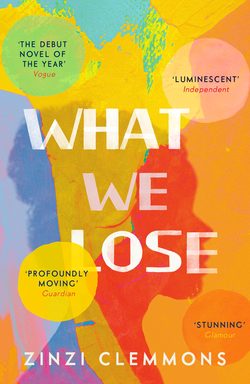Читать книгу What We Lose - Zinzi Clemmons - Страница 25
ОглавлениеI started listening to hard rock music with emotional lyrics, like my friends. We didn’t have cable, so I spent hours at their houses after school, watching music videos on MTV and clearing their pantries of sugary snacks. My parents would never buy snacks, because they were too practical and too busy for anything more than three meals per day. “Snack” was a word that never entered their vocabulary. On weekends, I would take the commuter train into the city, sit in coffee shops, and smoke cigarettes while reading old paperbacks. I told my parents I was going to the central library branch downtown to study, which was partly true. I was studying for my grown-up life, the one I would have when I finally left their house.
Most of my friends were school nerds, but some of them also had piercings and tattoos. My friend Fiona had green hair. My mother liked her the least of my other friends, whom she called freaks. I told my mother, with practiced cool, not to be so dramatic. The few times I tried this, it made her boil over.
I never got up the courage to color my hair, but I often let it go curly and wild, refusing to straighten or restrain it from the natural way it fell on my head. I had the nerve to like my hair just the way it was. My mother called me untidy. “I don’t know why you do this to yourself,” she said, huffing and rolling her eyes. What she meant was, why do you do this to me? My self-expression obviously caused her pain. From the time I was five until high school, she dragged me to the hairdresser every two months to have my hair chemically straightened. She insisted, explicitly and implicitly, that straight hair was beautiful, and the kind she and I were born with—kinky, curly, that grew up and out instead of down—was ugly.
“That’s what a pretty girl looks like,” she told me when I came home from the hairdresser, my hair shining, my scalp in ravages. Only the thought that my mother would find me beautiful—the anticipation of her approval and the peace it would bring—would comfort me through the pain the next time I sat in the hairdresser’s chair, to have it done to me all over again.
